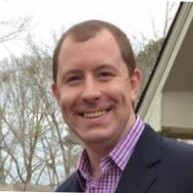
Topics
Executive Spotlight: Thomas Olson
Executive Spotlight: Thomas Olson, Director Supply Management, ARCOP
Interview conducted by Mitchell Smith, 2nd year MBA Student, TCU Neeley School of Business
March 7th, 2019
Mitchell Smith: Can you tell me a little bit about your background and other roles that led you to where you are right now?
Thomas Olson: I graduated from Emory University, and wanted to be an actuary coming out of school. I got a job at Hewitt Associates and I was a retirement financial management actuary working on retirement plans for big corporations. I found it wasn't what I thought it was going to be. It wasn’t as exciting as I was hoping, and I didn't get much outside interaction. I decided to change, and got into mortgage backed securities right around the time Bear Stearns exploded and crashed the economy. I found myself out of work about a year into that position. So I got a job as a forecasting analyst and did that for a year before I went back and got my MBA full-time and ended up falling in love with food services and Arcorp, and have now been here for 11 years.
MS: How do you see your job or your industry changing in the future?
TO: A lot of concentration on technology and focus on management across various industries. People are really making data driven decisions now, and that's highly evidenced here as well. We are getting away from a lot of the gut decisions that you've heard about in the past and people are using data to drive their decision making. We track everything from point of sale data, all the way to what our restaurants are purchasing from the distribution centers and ultimately what the inventory and our suppliers look like. So, visibility is definitely paramount and it's getting more and more important to understand what all those costs are in your business.
MS: What are some of the challenges you guys are experiencing either adopting new technology or are still trying to adapt to when making big data type decisions?
TO: So we don't have the full data set. We only have point of sale data for corporate owned locations and that accounts for a third of the system. There is still 2,000 restaurants and what’s going over their counters. We have a general idea based on what they're purchasing from the distribution centers and how quickly they purchase again. But the only sample data that we have is for corporate locations. So that's definitely a challenge, getting everybody on one register system.
MS: That sounds difficult when your data is not uniform across the industry. Could you walk me through an average day in your shoes? For example, what are your primary responsibilities and initiatives?
TO: I don’t know if there is necessarily an average day, but it ranges so much since my team is focused on everything from the planning stages of promotional activity, all the way through the execution phase and monitoring product as it moves through the system during a promotion. There's not a whole lot that is typical in any one day. I could be reviewing the forecast for an upcoming promotion, next I could be sitting in a meeting where we're talking about potentially doing something where we're going to have a new product and how much we need for that.
MS: That makes sense. You kind of have a stake in every decision and are involved in every department.
TO: The easiest way to put it would be, a lot of meetings with cross functional departments. Controlled chaos. Right.
MS: What skills have helped you progress in your career and what would you tell students looking to follow a similar career path as you?
TO: Have an eagerness to learn. Being willing to listen to others and learn from them is essential to your own growth and development. And in doing so, you're actually teaching yourself to be a better leader because you learn what it is that helps you get to where you need to be. As you realize that along the way, one of the best things you can do is bestow that on to other people. Along with that, I love problem solving, so having an analytical mindset and the ability to talk to people and ask them, “What problem are you trying to solve with xyz piece of data?”. That ability to ask, “What is trying to be resolved here?” has helped me a lot throughout my career. Lastly, learning to develop personal relationships is essential. Don't get stuck at your desk, walk around and collaborate with others because you never know who you're going to be interacting with down the road or who might be able to help you out down the road. Try to build those relationships.
MS: Following up on that, what has been the most influential piece of advice or person or book that has helped you succeed?
TO: It wasn’t something I got in the professional realm, but it was something I got from someone I grew up with. He said you should read the paper every single day. I took it as, you should try to consume as much as you can. Which reiterates what I was saying, don't be afraid to learn more. Because you never know if there's some article out there that might spark an idea about how to approach something differently, or how to analyze something or work with your team. You should always be looking to consume more information.
MS: Thank you for your time and thoughts today.